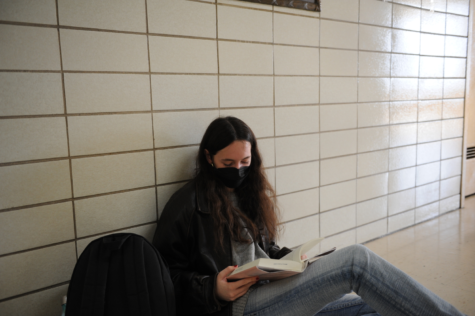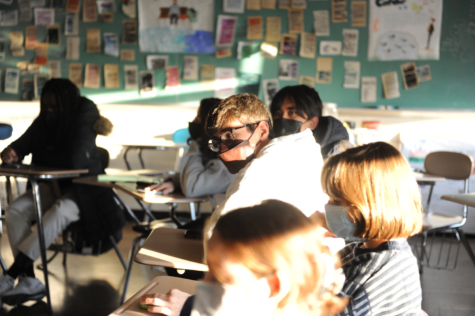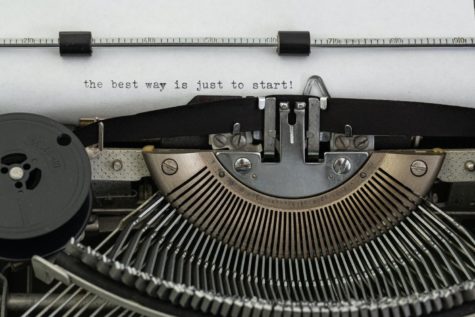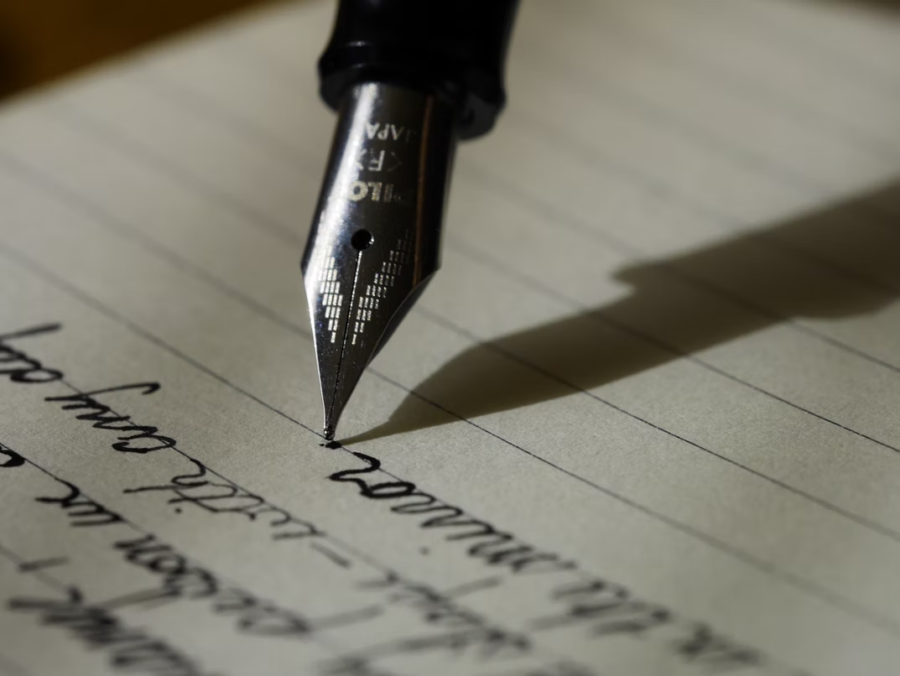The Power of the Pen
In a science-oriented school, how have Bronx Science students remained creative and masterful in their writing?
While typing may be faster and more convenient for some, research shows handwriting has its own unique advantages. There are less distractions and more opportunity to sharpen critical thinking and conceptualization skills.
Merriam-Webster defines prose as “a literary medium distinguished from poetry especially by its greater irregularity and variety of rhythm and its closer correspondence to the patterns of everyday speech.” While it may be wordier than Dictionary.com’s definition —”the ordinary form of spoken or written language, without metrical structure, as distinguished from poetry or verse” — the message remains abundantly clear: prose is just simple writing.
So then you might ask why I wrote this piece. Truthfully, when my English teacher said we had to write a piece of prose, I stared at my laptop for a while and avoided the assignment for a few days because I didn’t quite understand the first definition that popped up on google. I figured it would be better to avoid the assignment altogether than attempt to write a piece that broke the rules.
Obviously, this was untrue and rest assured I did turn in the homework, although much later than its intended due date. I couldn’t help but wonder if there was someone else who felt the same when it came to assignments like these.
For something so simple, students can often find themselves caught up in the language. Unlike traditional poetry and its many intricacies, prose should flow easily like a conversation. However, I think it’s this fact that pressures writers and leaves them with endless blank pages.

To combat the burden of simplicity that comes with writing prose, first take a breath. Next, really think about how prose, at its core, is just a conversation written on paper. Here is the fun part: people and language are ever evolving and part of the challenge comes with capturing that. But experienced publishers and writers far and wide have given their best tips on where to start, what constitutes good prose, and finally how to write it yourself.
If you surveyed most Bronx Science students, especially those in journalism, they would tell you the largest parts of writing involves editing, revising, and reading. While nothing should be done to an extreme extent, as a writer, the best thing you can do for your piece is sleep on it and then with a pen and a fresh set of eyes polish it. The treasure of putting a piece away to rest doesn’t come often so even if just for five to ten minutes; take a break after writing. Walking away from your laptop or notebook to clear your head can do a world of good for your piece.
It can also be said that in a science-oriented school people find themselves thinking either that writing isn’t for them and they will do the bare minimum to get a good English grade, or maybe they just don’t have an interest at all — a disdain for it in some cases. But there is also the rare possibility that someone is a writer outside of all the research and lab studies that go on at Bronx Science and their work is something they pride themselves on.
While I congratulate them and compliment their work, more advice can’t hurt. Though for anyone who falls into the other categories or completely out of the boxes given, there is no perfect way to write and no absolute recipe for success.

Art in any form is subjective and one could argue that the only true rules in writing are grammar rules for readability. Even then, sometimes, the inability to read a piece can contribute to the ideas it’s trying to express. Really, the world is your oyster— or, more specifically, the qwerty keyboard is whatever you’ll make of it.
While, seeing others create what look like fascinating and effortless pieces can shake your confidence in your writing, instead it should be all the more reason to try and try again.
Personally, I love poems. I think they offer a freedom that you usually don’t see: anything could appear on the page and tada! It’s a poem. Still, there are also just enough rules that you don’t have to shoot blind and feel like no one’s been in your position before when trying to come up with ideas and structure.
Prose poems do fall into their own category. As the name suggests, they are poems that flow as natural dialogue, which still does look very different from writer to writer. Some great examples are Information by David Ignatow, Bath by Amy Lowell, The World Keeps Ending, and the World Goes On by Franny Choi, and Feedback by Marcus Slease. They can all be found in the prose section of poetryfoundation.org. Each, distinct in its own way, shows how broad prose poetry is.
Now, theoretically if you’re still reading you either fall in the same place as me or at the very least want to improve your writing. That I can help with!
Instead of telling you every good tip I could think of, it’d be more useful to let you know what some of the most common mistakes to avoid are.
The two biggest mistakes are repetition and not filtering.
These go hand in hand; writers have words that they always come back to and certain ideas are constantly reused. Then an overwhelming amount of these cliches make their way through the cracks in editing and unnecessary fluff fills the piece. While story building and details are powerful, they can easily get turned into an overflow of information.
To avoid this, branch out into new territory and find verbs you’ve never used before.

Don’t get too comfortable in the language you know. While prose is everyday language that does not mean only your language, in a world of characters everyone deserves their own personality and talking style.
As for filtering this goes back to editing and revising. Outside of looking for grammar errors making sure each sentence is purposeful makes good paragraphs which in return make great pieces. Don’t forget about reading aloud either. The best way to catch mistakes is to hear yourself speak. This can also reveal any wordy sentences or strange phrases that may throw off your piece.
With all this being said, take your pens, pencils, or keyboards into the world and write. Write. Write. Write. Then revise and create something you’re proud of or at the very least write the best English assignment you’ve ever submitted.
Really, the world is your oyster — or, more specifically, the qwerty keyboard is whatever you’ll make of it.
Chanel Richardson is an Arts & Entertainment Editor for 'The Science Survey.' She enjoys how journalism can uncover the truth about important matters...

